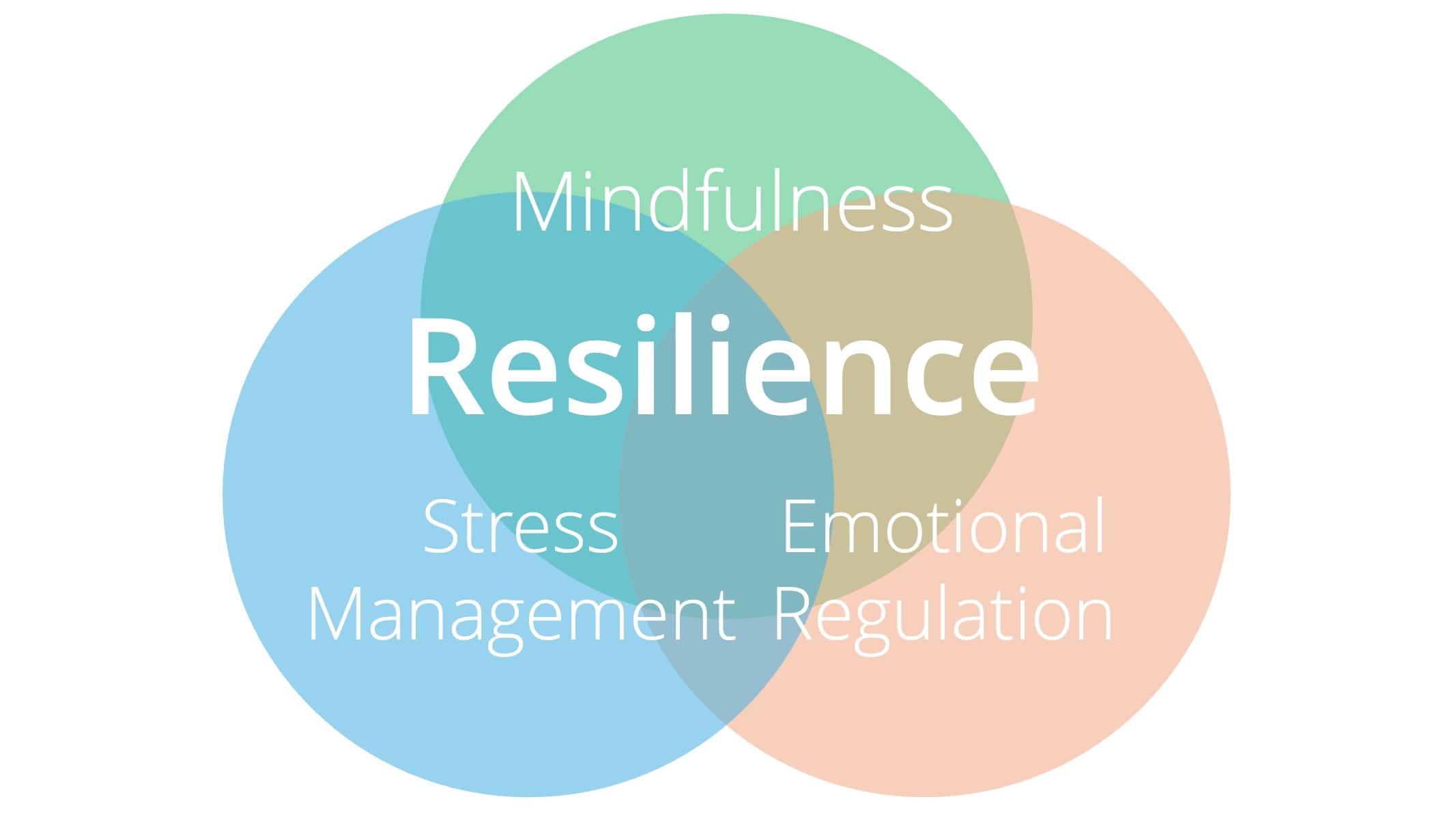Research shows that practicing mindfulness can enhance resilience – the capacity to cope with adversity. Below are five ways mindfulness builds resilience, each of which is a key area of focus in my mindfulness courses.
Focus
Mindfulness trains the mind to concentrate. By practicing mindfulness (for example, focusing on the breath or bodily sensations), people learn to sustain their attention on what they choose to focus on. Over time, this improves mental focus.
A 2023 study (see below for the links) found that a short mindfulness training program improved participants’ sustained attention and reduced mind-wandering.
Equanimity
Equanimity is maintaining a calm and balanced state of mind, even in stressful or emotionally charged situations. Mindfulness and meditation build equanimity by helping us to become familiar and comfortable with difficult emotions and unhelpful thoughts. This ability to remain even-tempered helps build resilience, as it prevents small setbacks or negative events from derailing our mental state.
Breathwork
Controlled breathing is a core part of many mindfulness practices. It is an ancient practice known as Pranayama. Slow, deep breathing helps reduce the stress response and calms both the mind and body. These are practical day-to-day skills. Breathwork helps us remain calm under pressure and bounce back more quickly from stress.
Stress Management
Managing stress effectively is critical to resilience. Mindfulness is well known for reducing stress. By focusing on the present moment, we break the cycle of stress, anxiety, and worry. A regular mindfulness and meditation practice helps reduce feelings of overwhelm, building the capacity to handle life’s challenges.
Emotional Regulation
Resilience involves handling emotions in a healthy way. Meditation teaches us to become familiar and comfortable with our emotions. This improves emotional regulation. Over time, our emotions become less intense and less controlling. The science suggests meditators are better equipped to experience emotions like anger, sadness, or fear without being overwhelmed by them.
My online and in-person 5-week mindfulness course teaches all the elements of mindfulness and resilience in this article from the ground up.
Sources:
Peer-reviewed studies and reviews demonstrating links between mindfulness and improvements in focus, equanimity (emotional balance), breath-based calming responses, stress reduction, and emotional regulation have been cited above to provide evidence for each aspect of resilience. Each study is published in reputable scientific journals or institutions, highlighting that the benefits of mindfulness are supported by research rather than hype or anecdote.
References
- Focus – Lin, Y., et al. (2023). Mindfulness training improves sustained attention and reduces mind wandering: A meta-analysis. Consciousness and Cognition, 108, 103503. https://pubmed.ncbi.nlm.nih.gov/36697933/
- Equanimity – Taylor, V. A., et al. (2011). Impact of mindfulness on the neural responses to emotional pictures in experienced and beginner meditators. NeuroImage, 57(4), 1524–1533. https://doi.org/10.1016/j.neuroimage.2011.06.001
- Breathwork – Lehrer, P. M., & Gevirtz, R. (2014). Heart rate variability biofeedback: How and why does it work? Frontiers in Psychology, 5, 756. https://doi.org/10.3389/fpsyg.2014.00756
- Stress Management – Khoury, B., et al. (2015). Mindfulness-based stress reduction for healthy individuals: A meta-analysis. Journal of Psychosomatic Research, 78(6), 519–528. https://doi.org/10.1016/j.jpsychores.2015.03.009
- Emotional Regulation – Guendelman, S., et al. (2024). Mindfulness and emotion regulation: A systematic review of neural and behavioral evidence. Neuroscience & Biobehavioral Reviews, 154, 105351. https://pmc.ncbi.nlm.nih.gov/articles/PMC11591838/

